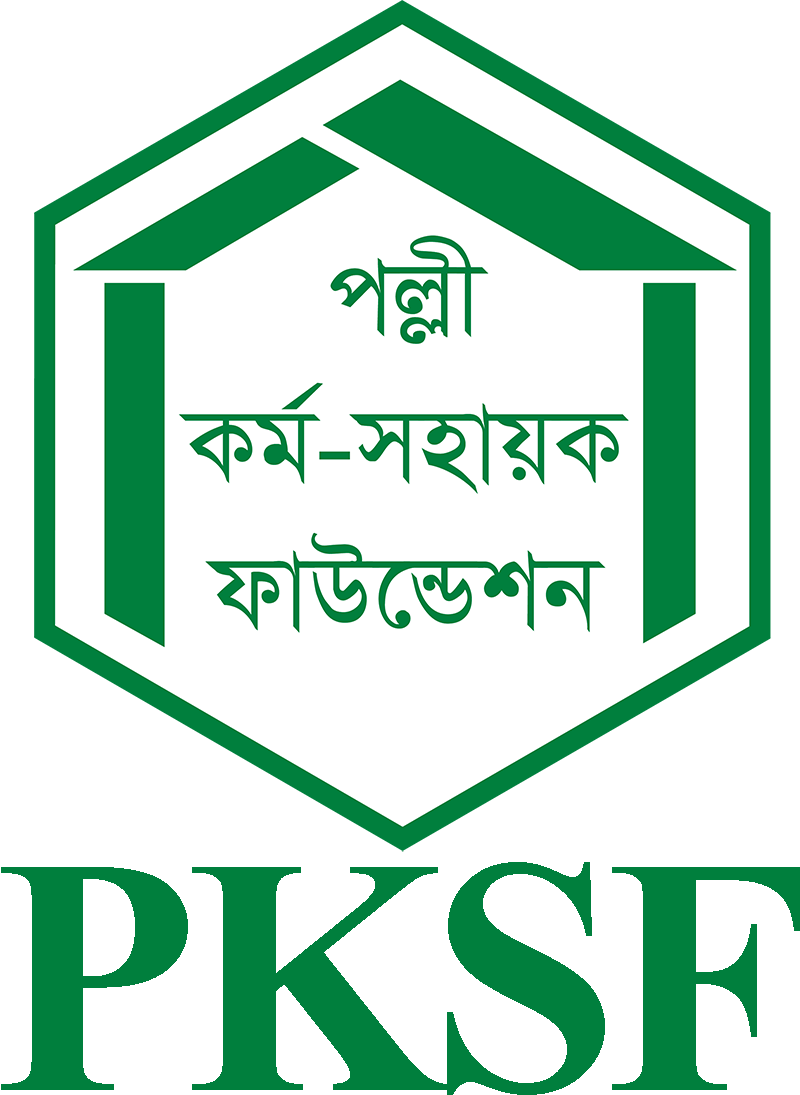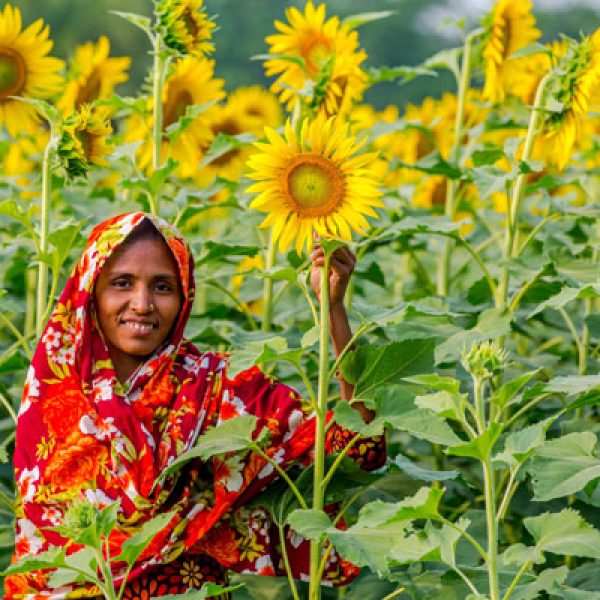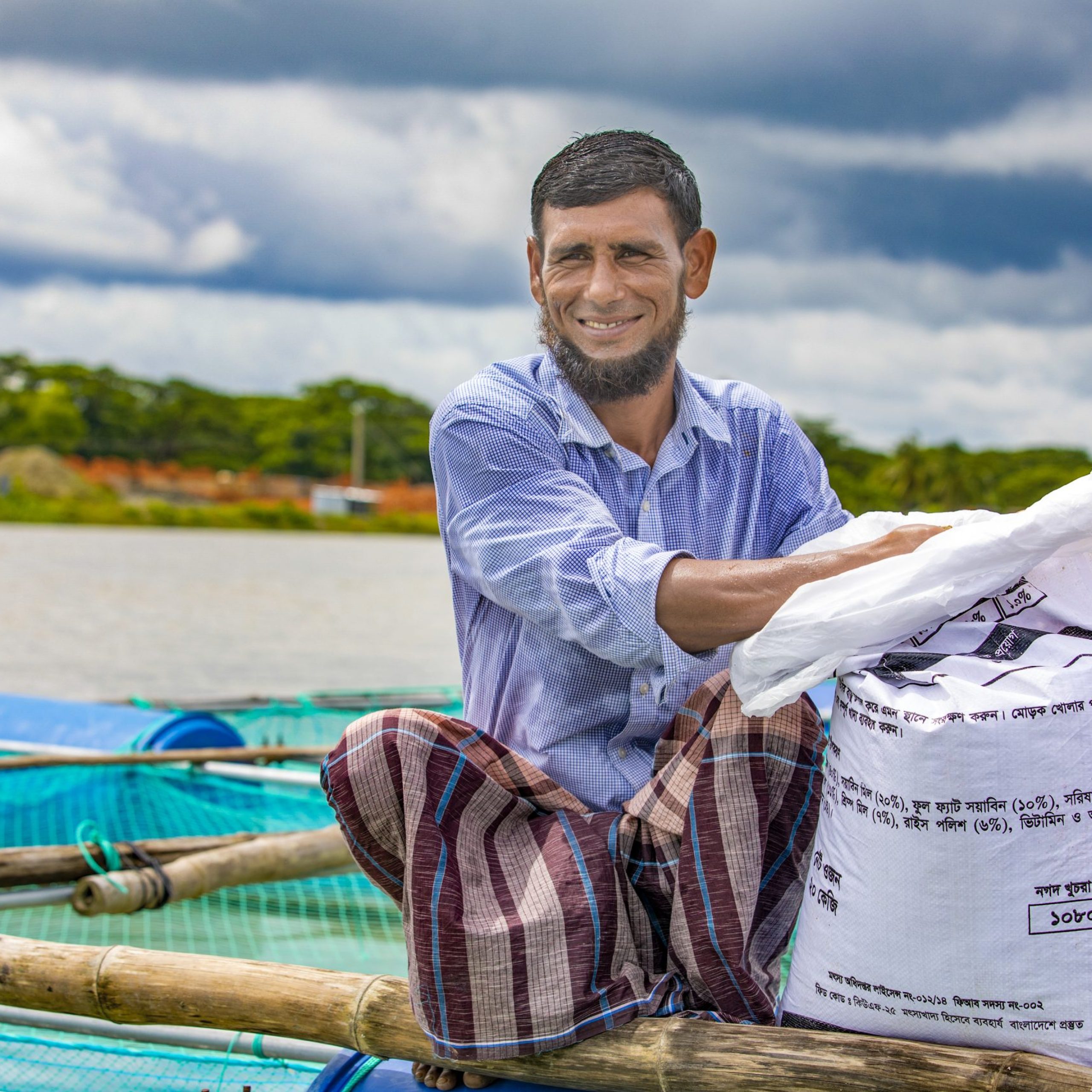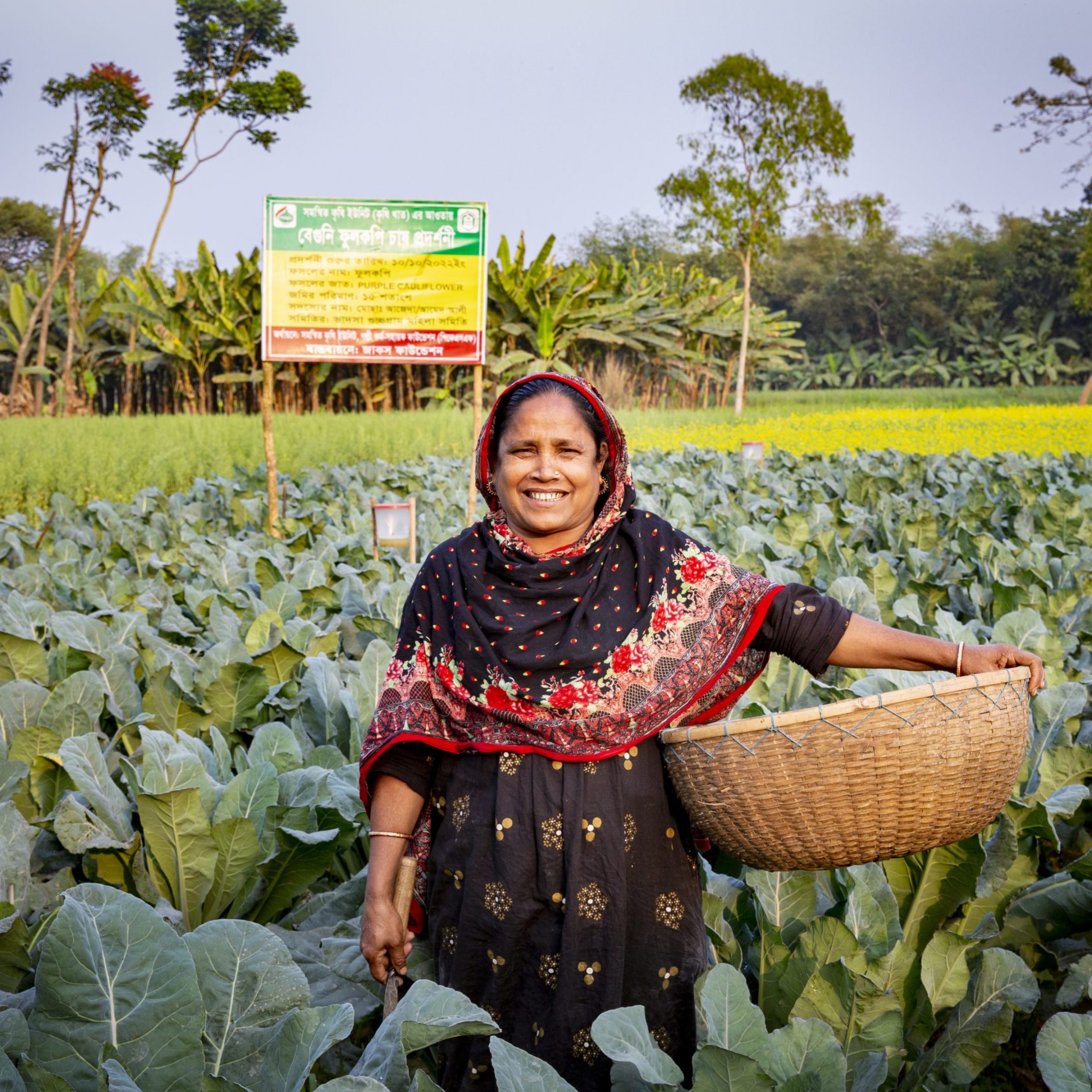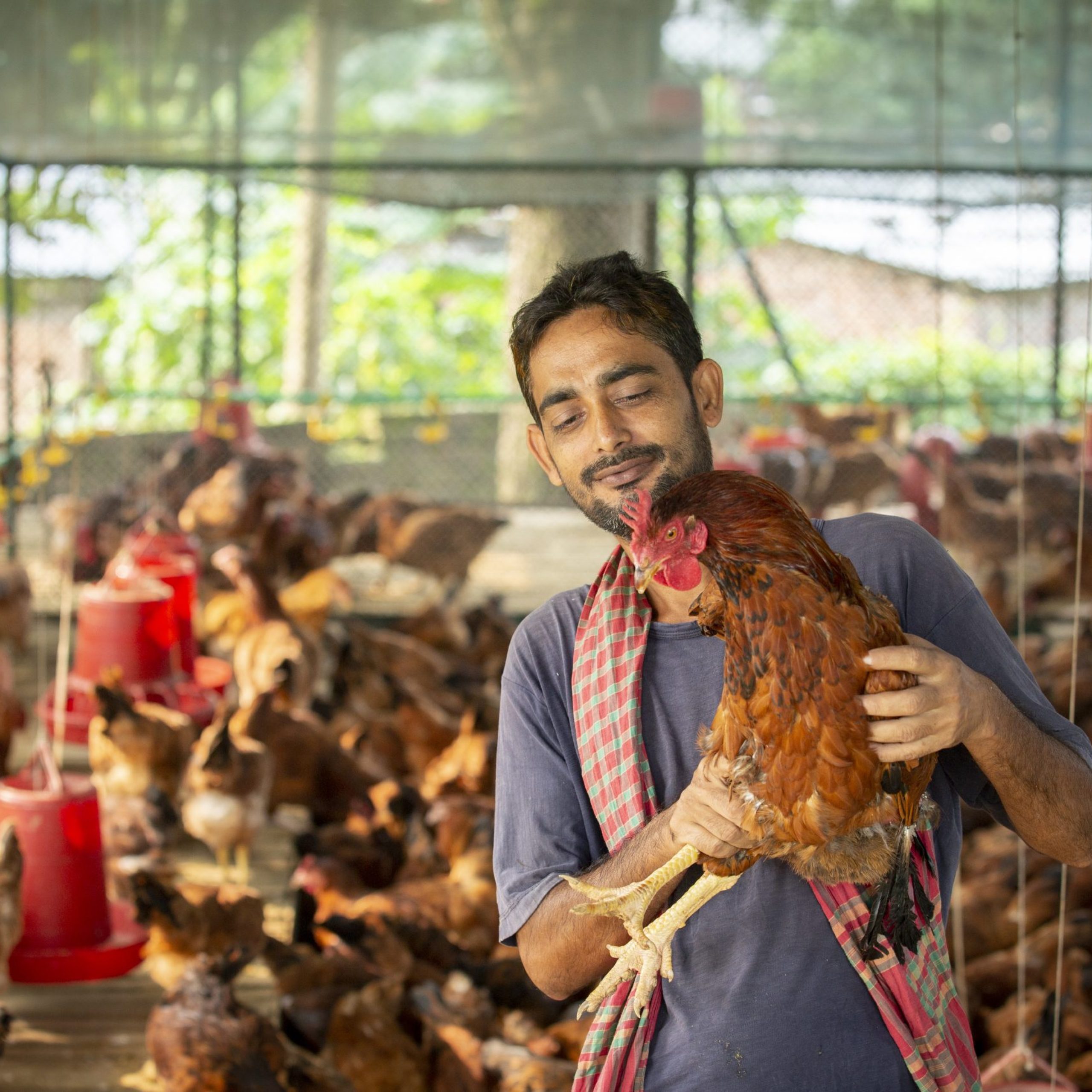PKSF is implementing various initiatives to expand sustainable agricultural technologies and enhance the capacity of small and marginal farmers to ensure food and nutrition security for the people.
PKSF is dedicatedly implementing a range of initiatives to expand sustainable agricultural technologies and enhance the capacity of small and marginal farmers, with the aim of ensuring food and nutrition security across Bangladesh. These activities are being carried out in agriculture, fisheries, and livestock sectors through the Agricultural Unit.
To increase members’ income, generate employment, and preserve soil fertility through enhanced agricultural productivity, this unit promotes various proven technologies in 104 upazilas through 39 Partner Organizations (POs), with special emphasis on climate-vulnerable, disadvantaged, and poverty-prone areas.
AGRICULTURE ACTIVITIES
In the agriculture sector, a range of technologies are extended among farmers. These include climate-resilient, high-value, high-yielding, and nutrient-rich crops such as summer tomatoes and off-season watermelons, as well as the establishment of high-value fruit orchards and year-round vegetable and fruit production. In addition, PKSF is implementing different initiatives to expand suitable agricultural practices such as the use of eco-friendly mulching paper, production of quality seedlings in cocomedia, safe vegetable cultivation using trico-compost and vermicompost, and the application of the Sarjan method for crop cultivation.
Key Achievements (up to June 2024)
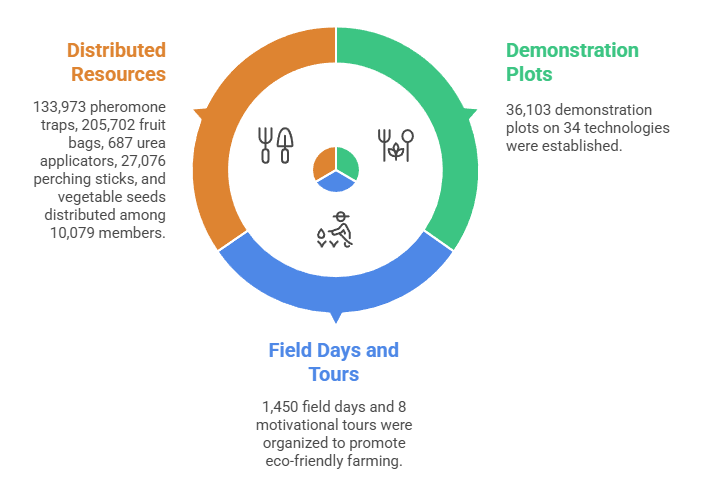
Alternative Crop Production instead of Tobacco: Under this program, high-value crops are being cultivated on 3,542 hectares of land particularly used for tobacco cultivation. Currently, 5,621 tobacco growers are producing various high-value alternative food crops.
Safe Crop Production and Marketing: In 40 villages of Cumilla and Manikganj districts, 917 farmers are cultivating indigenous vegetables using trico and vermicompost in an environmentally sustainable manner. These vegetables are marketed locally and exported to Italy and England.
Employment in Oil, Pulses and Spice Crops Cultivation: To enhance employment opportunities, 1,260 farmers are cultivating oil, pulse, and spice crops on 173 acres of land. The initiative supports the expansion, processing, and marketing of these crops.
Fisheries Activities
In the fisheries sector, several advanced technologies are being expanded, including high-yielding G-3 and Subarna Rui varieties, semi-intensive carp fattening, and micronutrient-enriched indigenous fish cultivation. Additional technologies include the establishment of breed banks for Mala fish, value-added fish product development, and fish farming in specialized tanks in drought-prone areas. Technologies such as crab fattening, salinity-tolerant fish farming in coastal regions, and mariculture of green mussels, oysters, and seaweed are also being scaled up.
Key Achievements (up to June 2024)
Livestock Activities
To generate employment, promote sustainable development, and enhance productivity, a range of advanced technologies are being expanded in the livestock sector, including Suborno chicken rearing, salinity-tolerant fodder cultivation, climate-resilient poultry farming, and cost-effective cattle fattening.
Key initiatives include safe meat and egg production, dairy farming based on best practices, and diversification of milk-based products.
Key Achievements (up to June 2024)
Agricultural Mechanization Program
PKSF is implementing agricultural mechanization activities on a pilot basis using its own funds. Under this program, credit support is provided for the adoption of farmer-friendly machinery across various stages of crop production—including seed sowing, seedling transplantation, fertilizer and pesticide application, harvesting, and post-harvest processes such as threshing and drying—to expand agricultural mechanization.
Expansion of environment-friendly technology
- High-value and new variety crop technology among farmers
- Climate shock-tolerant varieties
- Good agricultural practices for safe vegetable production
- Preservation of native varieties
- Climate-adaptive technology
- Preservation of soil quality
- Food and health management in fish farming
- Climate-adaptive native and high-value fish culture
- Processing and marketing of livestock products
- Environment-friendly waste management, etc.
Financial services:
- Appropriate financial services for farm, fisheries and livestock preservation, processing, marketing and sales
- Technical services for the same
Skills development and management:
- Training farmers for sustainable and environment-friendly development
- Linking POs and relevant PKSF staff with research and educational institutions for knowledge enhancement
Safe food production and marketing:
- Ensure production of safe farm products
- Take effective measures for processing and marketing of these products
